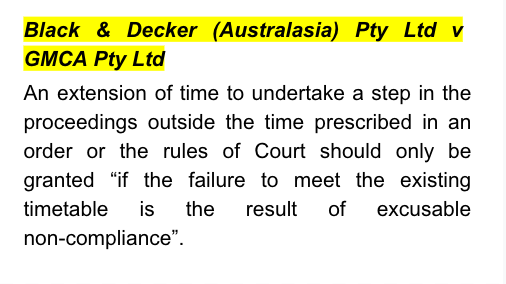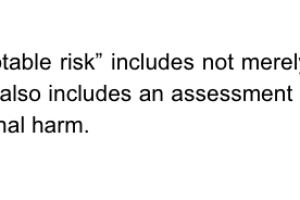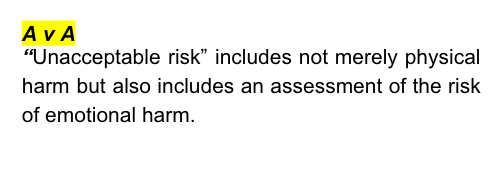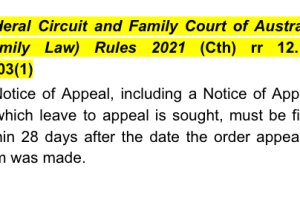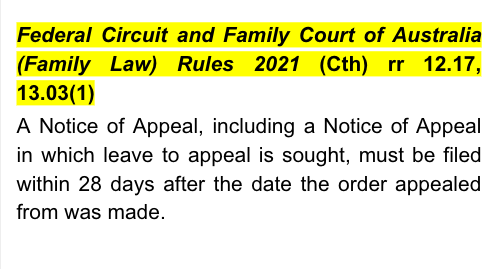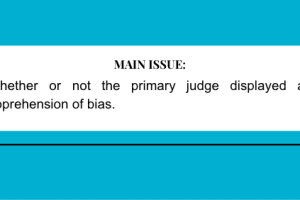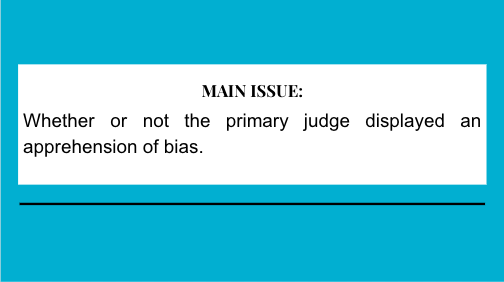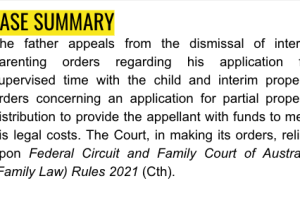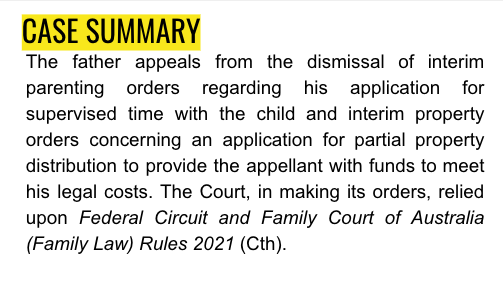- · 4849 friends
Father Claims Apprehended bias of the judge due to no contact orders made due to the mother's anxiety.

Bower & Marshall (No 2) [2022] FedCFamC1A 159 (11 October 2022)

The father appeals from the dismissal of interim parenting orders regarding his application for supervised time with the child and interim property orders concerning an application for partial property distribution to provide the appellant with funds to meet his legal costs. The Court, in making its orders, relied upon Federal Circuit and Family Court of Australia (Family Law) Rules 2021 (Cth).

Facts
The appellant was born in 1986 and the mother, Ms Marshall (“the respondent”), was born in 1991. The respondent also has a child from a previous relationship, B who was born in 2012. The parties commenced their relationship in 2014. The child was born in 2016 and is now 6 years old.
The respondent has been the primary carer of the child since she was born. The appellant contends, however, that he also assisted the respondent in caring for both the child and B. The respondent contends that during the course of the parties’ relationship and subsequent to its termination, she has been subjected to a pattern of coercive and controlling conduct including serious acts of violence perpetrated by the appellant, the most serious of which involved allegations that the appellant had engaged in acts of non-fatal strangulation. In early 2021, the appellant was charged with criminal offences in relation to an alleged incident of assault that the respondent contends occurred in January 2020.
When the matter was listed before the primary judge, it was accepted that those criminal proceedings were listed for hearing mid 2022. On 30 November 2020, the parties entered into consent orders for the child to spend supervised time with the appellant every second weekend in the presence of the child’s paternal grandparents. The parties experienced ongoing difficulties in respect to their relationship and, as and from February 2021, the child has not spent time with the appellant.
In the proceedings before the primary judge, the respondent contended that the child would be subjected to psychological harm if the child spent time with the appellant, including if that time was to be supervised. The respondent further contended that as result of being subject to a pattern of coercive and controlling conduct by the appellant, including acts of significant family violence, she suffers from post-traumatic stress disorder (“PTSD”). The respondent argues that the prospect of her engaging in communication with the appellant and/or the prospect of the child spending time with the appellant would cause an exacerbation of her condition such that it would adversely impact upon her parenting capacity and thereby vicariously adversely impact upon the child. The appellant contended that the respondent may not have the parental capacity to properly take care of the child as a result of what he contended was the respondent’s inability to maintain a clean and hygienic house, the child not being properly toilet trained and not being fed with nutritious food.

Issues:
Whether or not the primary judge displayed an apprehension of bias.

Applicable law



Analysis
The relevant test for apprehended bias is as to whether a fair-minded lay observer might reasonably apprehend that the presiding judge might not bring an impartial and unprejudiced mind to the resolution of the question before the Court. There are two aspects to the test. First, the party alleging apprehended bias must identify the statement and/or conduct that it is said might lead the decision-maker to decide a question other than on its merits. The second requires the party complaining of the existence of apprehended bias to articulate the logical connection between the matter identified and the apprehended fear or concern that the judicial officer deviated from the course of deciding the question other than on its merits. The appellant argues in paragraph 43 that a cumulative effect of several comments and actions by the primary judge resulted in a situation where “justice was not seen to be done”.
The appellant’s contention appears to be that there is an apprehension of bias as a result of indications of pre-judgment, rather than any suggestion of conflict of interest. That contention ignores the fact that, during an exchange between the primary judge and the parties that occurred at the commencement of proceedings from 9.39 am to 9.48 am. The primary judge encouraged the parties to have discussions as to whether they were able to resolve the issues in dispute, including potentially by reaching agreement in respect to the child spending time with the appellant in the presence of a professional supervisor at a contact centre. Exchanges between counsel and the bench regarding issues in the proceedings are commonplace. It does not indicate pre-judgment.
Conclusion
The appeal be dismissed. Within 28 days of the date of these orders, the appellant pay the costs of the respondent in the sum of $4,356.



